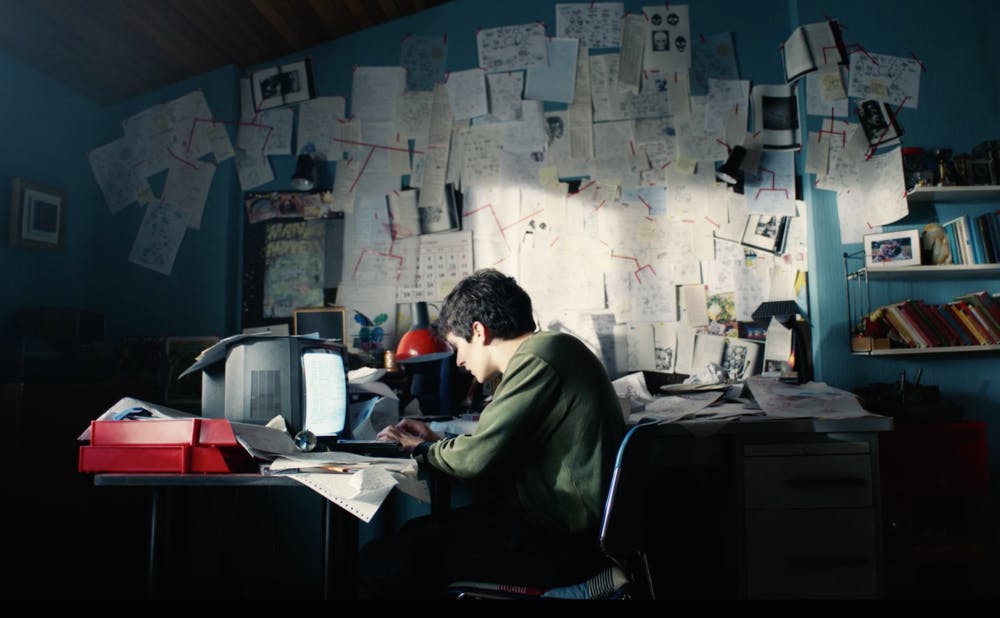After three hours of watching “Black Mirror: Bandersnatch,” Netflix’s new standalone "Black Mirror" movie that was supposed to take 90 minutes, I had to give up. The movie is an interactive experience, meaning the viewer gets to pick between two options at various points to determine the direction of the plot, and I had basically exhausted most of the endings and timelines. Near the end, the movie became hard to watch, as finding new scenarios required re-watching earlier scenes numerous times. The film's novel concept quickly went from intriguing to grating, and by the end of the interactive experience, I wished I had spent those three hours watching three better “Black Mirror” episodes.
But the interactive nature of the film is not its main problem. It’s just boring. The movie, set in the 1980s, revolves around a young man named Stefan, who successfully pitches a video game concept called "Bandersnatch" to Tuckersoft, a well-known video game company. Tuckersoft’s success is largely attributed to Colin, a famous video game developer coming off a string of hit games. The movie spends most of its time with Stefan as he tries to complete the game for a Christmas season release date.
Unlike most “Black Mirror” episodes, the story in “Bandersnatch” does not explore the consequences of some sort of futuristic technology. “Black Mirror” usually leaves the viewer questioning the merits of modern technological advancements, which makes the show both compelling and unique in today’s television landscape (though it clearly takes inspiration from the “Twilight Zone”). Instead of sticking with this winning formula, the episode tells a relatively simple and dull story without asking any broader questions about society. This interactive experiment could have worked, but it needed one of the show’s better stories from episodes like “White Bear," “Black Museum” or “Nosedive”.
It is worth mentioning that the interactive technology itself is incredible. Choices register quickly and easily integrate into the story arch, and the script smartly finds ways to avoid awkwardness during the roughly 10 seconds alloted for a selection. These options show up during important moments in the story and were not overused., showing that the feature has great potential for both future “Black Mirror” episodes and other shows.
There is a concern with the interactive format inherent in its concept, however. I found that it took me out of the story at times, since most impactful scenes could be quickly undone in an alternate timeline. For example, early on, the viewer is given a choice over whether Stefan should work on developing the game at home or at the Tuckersoft office. If Stefan works at the office, the game is a failure, and the story abruptly ends only to quickly lead the viewer back to the same decision about where to work on the game. Of course, this structure is part of the story’s message, that alternate timelines exist allowing versions of ourselves to live entirely different lives. However, it still hurt the movie’s watchability, and it will be a greater problem when this technology is used by Netflix for things that are not trying to make this point.
As far as positives for the movie itself, outside of its format, there are only a few. The acting is solid across the board, but Will Poulter stands out for his work as Colin. "Bandersnatch" makes some surprising moves, like including Netflix as part of the film in one path, but even this story is rushed and feels unfinished. And no matter which path you choose, the film ends unhappily. This move is unsurprising for “Black Mirror”, which never provides easy answers, but it was refreshing to see a film nowadays end without much hope for its main characters.
In a way, “Black Mirror: Bandersnatch” is itself a video game. Netflix is the console that empowers us as the players to choose our path in the game. The concept of the game "Bandersnatch" perfectly matches the experience we have as the viewers: two choices at various points that decide which ending you reach. But by trying to be both a movie and a video game, "Black Mirror: Bandersnatch" cannot achieve the full success of either format.
Get The Chronicle straight to your inbox
Signup for our weekly newsletter. Cancel at any time.

